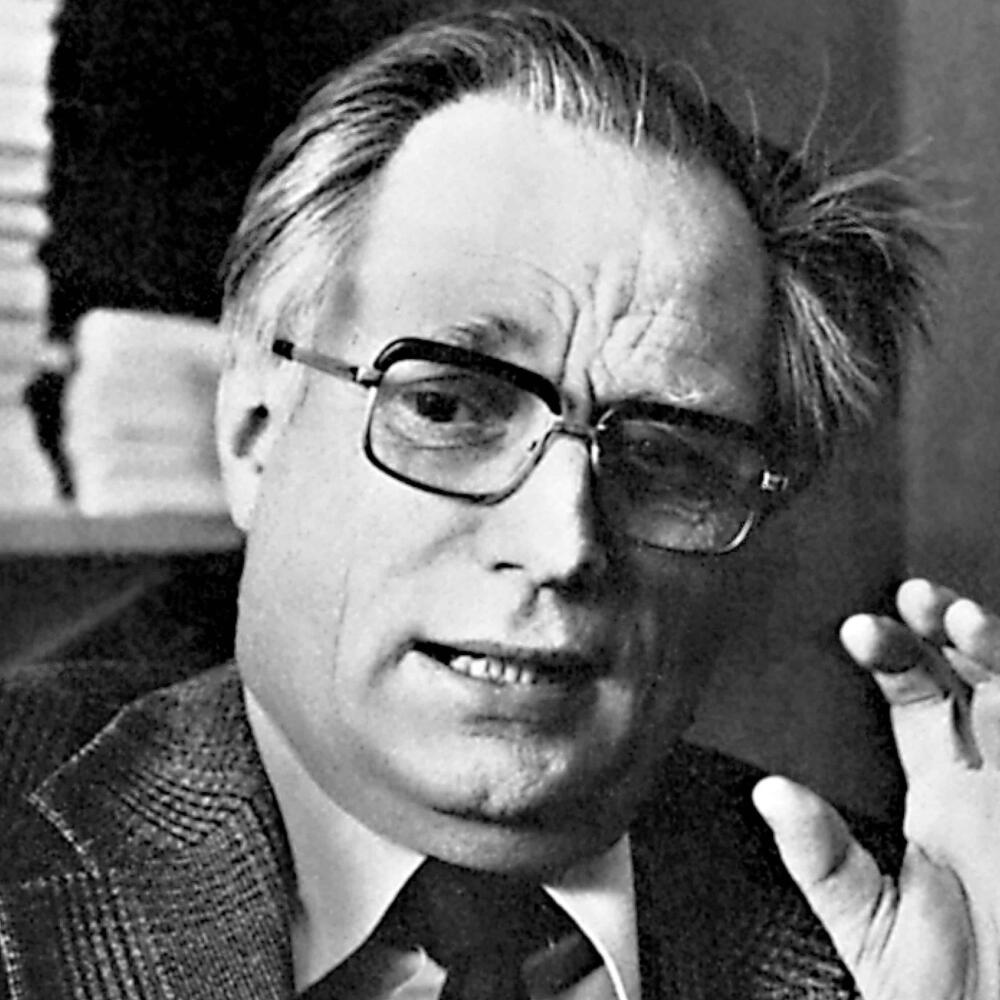The Effectiveness of Anthroposophy
Gerhard Kienle (1923-1983), founder of the Herdecke Community Hospital and Witten-Herdecke University, was as involved in politics and culture as he was in the Anthroposophical Society. This was a balancing act that, according to Kienle, should not have been one, and even today, it casts a harsh light on the self-centredness of the Anthroposophical Society.[1]
In July 1954, Kienle wrote in a letter about his work at the Tübingen University Psychiatric Hospital (under Prof Ernst Kretschmer): “Everyone knows that I am an anthroposophist, I make no secret of it, but everyone respects it, in a positive way.”[2] In a letter to his group of friends, who were preparing the first anthroposophical community hospital, he had put it as follows three years earlier, in August 1951: “But simply building a new hospital to add to the many others cannot be considered justified. Every new institution is only justified if it is the expression of a new impulse, if a step forward has been taken at a human level. […] You can still expect a certain degree of sympathetic tolerance from others for the fact that you want to do medicine in a different way, likewise if you make a hospital which is intended to satisfy the need for anthroposophic medicine for certain groups—but we cannot expect tolerance that is any different from the tolerance that is shown towards Native Americans on their reservations. Such tolerance is always sentimental in character. This changes [however] at the moment when you place yourself within the problems of a particular sphere and are willing to renounce all personal emotional needs and commit yourself completely to solving the problems, not by proselytising about solutions, but by drawing the consequences from the questions. Such idealism is immediately understood and respected everywhere. Then respect will indeed also be shown for the fact that you represent anthroposophical ideas, even if they are incomprehensible to others. As soon as you put your emphasis on the questions and represent the anthroposophical ideas not as dogmatic prerequisites but as consequences, you will be understood and accepted at a human level! […] This is a consistent experience of mine: you can put forward the most spiritual things, they don’t need to be understandable at all, but they must be fundamentally justified in a factual idealism—then they will also be fundamentally acknowledged by people who are of a different opinion.”[3] Rudolf Steiner proceeded in precisely this manner, albeit in his own way—he faced up to the concrete “problems” in areas of life (from medicine to agriculture and economics) and drew “consequences” from the questions; he did not “proselytise about solutions”, but practised a “factual idealism”—as can be seen comprehensively and in detail in his life’s work, if you really take the trouble to study it.[4]
This text is an excerpt from an article published in the (online exclusive) Goetheanum Weekly. You can read the full article on the website. If you are not yet a subscriber, you can get to know the Goetheanum Weekly for 1 CHF./€.
Cover Image Gerhard Kienle
1. On Kienle’s life [in German] see: Peter Selg “Gerhard Kienle” in Das Goetheanum, No. 46/2023. At the time, a follow-up essay on Kienle’s relationship with the Anthroposophical Society was announced, which is now happening.
2. Quoted from Peter Selg, Gerhard Kienle. Leben und Werk [Gerhard Kienle. Life and work], volume 1 (Dornach, 2003).
3. Ibid.
4. See i.a. Peter Selg: Rudolf Steiner. 1861–1925. Lebens- und Werkgeschichte [Rudolf Steiner. 1861–1925. History of his life and work], seven volumes (Arlesheim, 2017).

